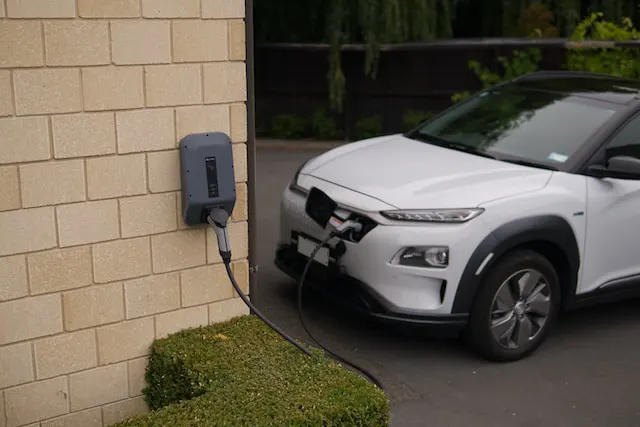Can EVs help us tackle the climate change issue?

Electric cars are certainly the future – there’s no doubt about it. Every year that’s passed since the Tesla became the world’s first ever “all-electric” sedan, the automotive industry has been hard at work creating new, more cutting-edge electric vehicles. We’ve seen well-established existing manufacturers adding to the list of luxury EVs, but we’re also seeing new names pop up with their own models.
Compared to their conventional gasoline cousins, electric vehicles are far better off in terms of performance, energy efficacy, tax credits, and future models boast improved maintenance and convenience as well. Technically, we’re still in the infancy stages of electric vehicles, and they’ve already proven to be gamechangers. In fact, electric vehicles may be key in reducing our carbon footprints all around. Can EVs help us tackle the climate change issue? Let’s dig in.
EVs aren’t entirely fossil-fuel free
While – yes – electric vehicles don’t technically run on fossil fuels directly, as they do not need gasoline to operate, they do run on electricity which is majorly produced from fossil fuels in a large number of areas in the world. Moreover, energy is required to manufacture the vehicle – especially the battery.
So, no – there’s no way around it. Fossil fuels are still used in the production and upkeep of electric vehicles, but they’re still significantly more energy efficient than gasoline powered vehicles. In countries that utilize intensive coal electricity generation, EVs benefits may be far smaller and they’re likely more comparable to the efficient variations of conventional vehicles – i.e., hybrids.
Of course, countries are starting to wise up to the carbonation of electricity generation as the climate issue progresses, and many are starting to decarbonize their processes in order to meet climate targets. In fact, in the UK alone (2019) the lifetime emissions per KM of driving a specific model of EV was targeted at about three times lower than the typical conventional gas-powered car.
Electric vehicles may be more costly than gas-powered cars
In Canada, the cost to purchase a brand new EV is between $32,000 and $160,000. Clearly, that’s a big range. How much you will pay will largely depend upon the electric vehicle you choose, as there’s currently a huge number of manufacturers, options, models, materials, etc.
Leasing an EV may help you to save significantly, if you want the perks of driving an EV but don’t want to have to spend the money to purchase outright. You’ll get lower payments, still receive rebates, and you may be able to avoid the depreciation that EVs can face. Unfortunately, this will mean that you won’t be able to own your electric vehicle, but it will give you the time to decide if you want to purchase one on your own after your lease period.
The bottom line? Do your research. EVs aren’t cheap, but it’s expected that they may come down in price over the next few years as the supply and demand for them increases. What is right for you may depend on your situation. You can still keep your gas-powered car and reduce your carbon footprint simply by opting to drive less, or choosing to carpool/take public transport as an alternative.
What makes EVs more eco-friendly than gas-powered cars?
There’s a few reasons why EVs may be more eco-friendly than their gas-powered alternatives. Electric cars as a greener alternative are growing in popularity, and here’s why.
They produce no or fewer tailpipe emissions
With the exception of hybrids, EVs produce no tailpipe emissions. Unlike their internal combustion engine cousins, i.e. gasoline or diesel-powered vehicles, electric vehicles run on electricity. Rather than fueling up, users charge up at their homes or dedicated charging stations. Gas-powered vehicles’ tailpipe emissions are one of the major culprits for air pollution in the world.
In some countries, they are built eco-friendly
Depending on the country of origin and the manufacturer, many electric vehicles are built with more eco-friendly materials that are bio-based or recycled. This reduces the overall waste produced during manufacturing and causes less fossil-fuels to be used overall.
They utilize renewable energy for charging
Electric vehicles utilize renewable energy for charging, rather than contributing to further air pollution. Renewable energy is essentially anything that can be made renewable, i.e. wind, hydro, solar, geothermal, etc. Unfortunately, gasoline may only be used once.
Technology is gradually improving as we move through the years. In the near future, we can expect that there will be less gas-powered vehicles on the road and more electric. Currently, electric vehicles are more costly to purchase upfront than a gas-powered vehicle, but as demand and supply increase, as well as increased production techniques and more options for materials, we may begin to see electric vehicles on the road as the norm. Overall? This can help to make our world greener with fewer greenhouse gas emissions polluting our air and environment.
Panda7 wants to help you go green
Contrary to popular belief, it is easy being green! While there are many ways to reduce your carbon footprint, including making small changes at home, swapping out your traditional form of transport for an electric alternative (or even public transport) or even simply getting a quote with Panda7. We’ve pledged to plant one tree per every quote our clients apply for, and three for every policy purchased! Getting a quote is easy, free, and requires no obligation from you. Go green by getting a quote today!

